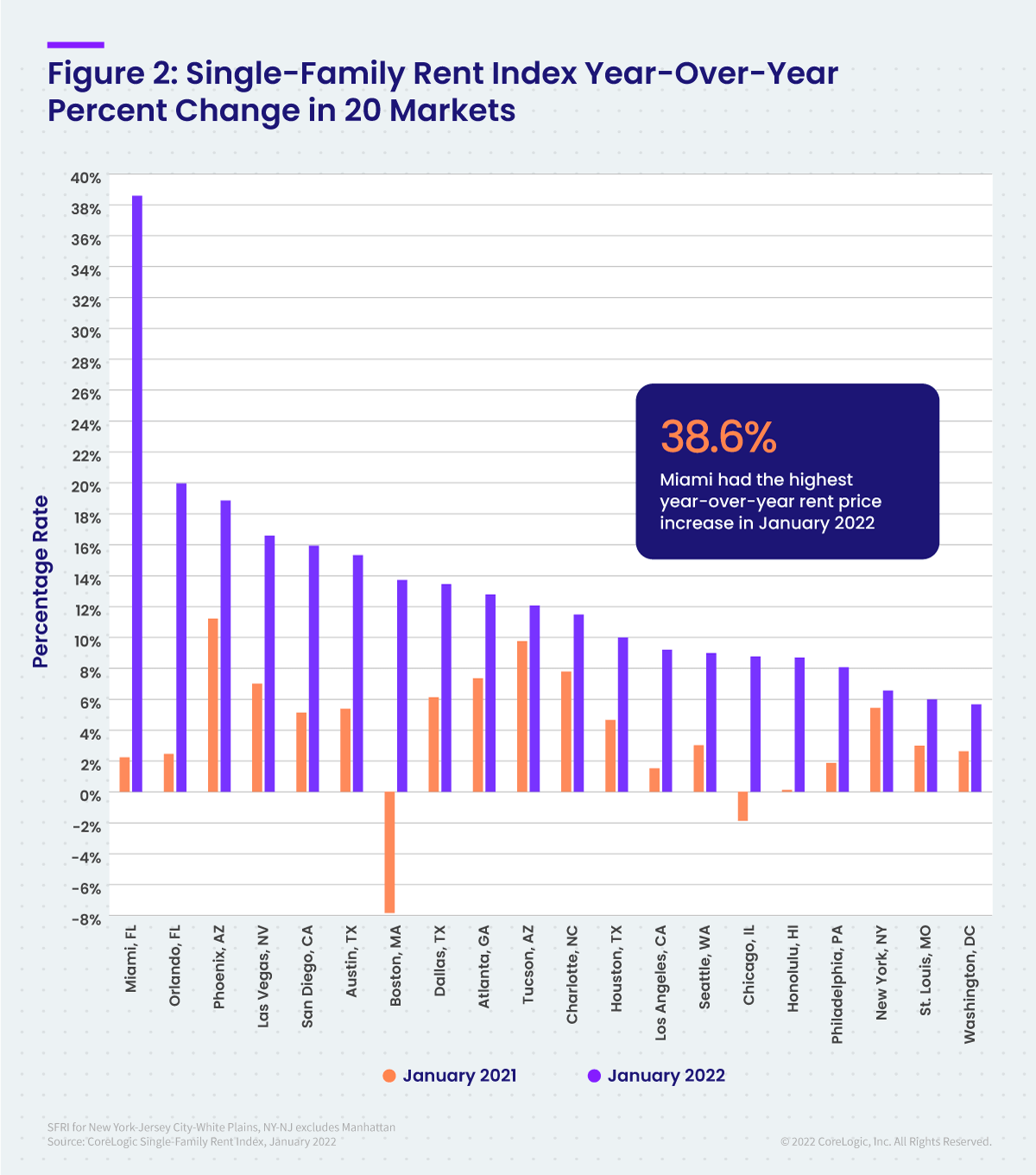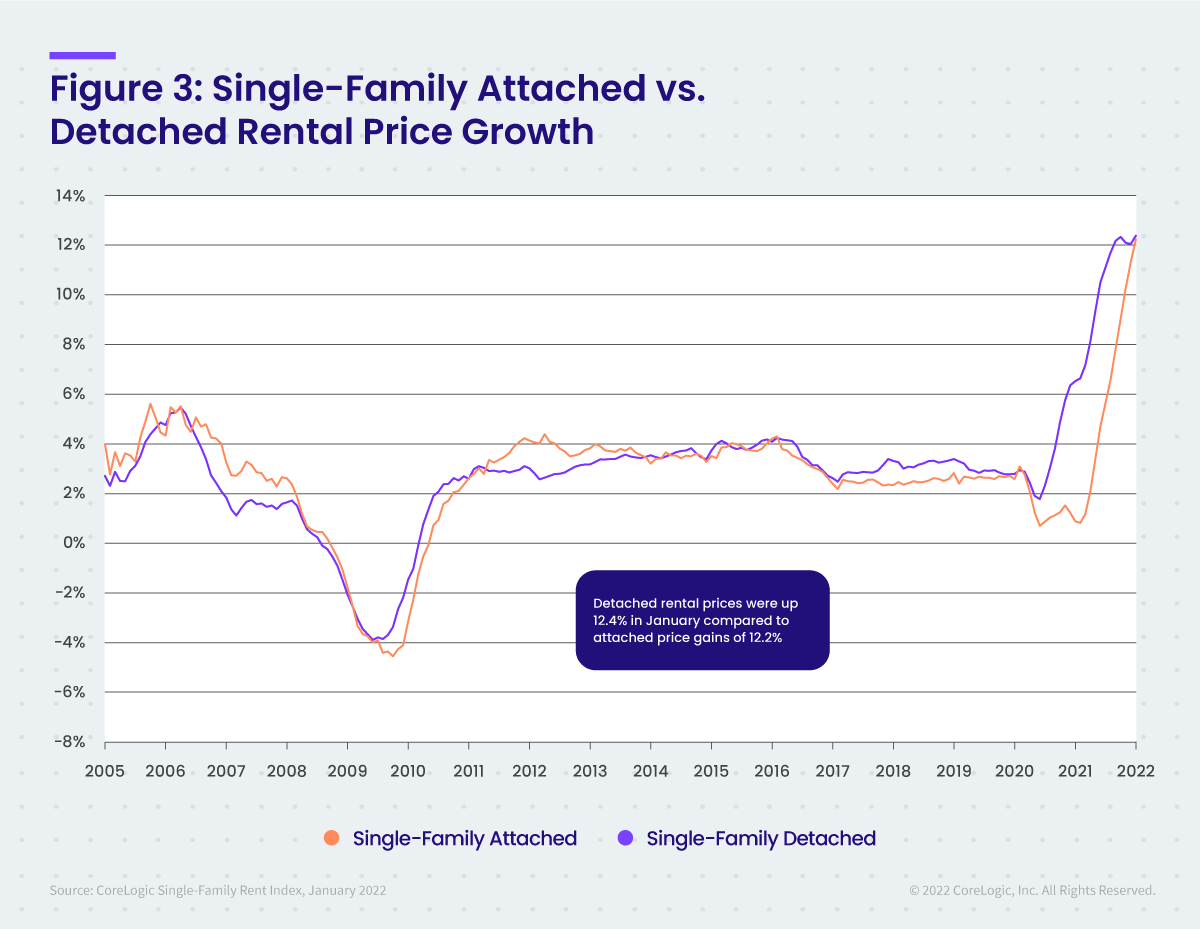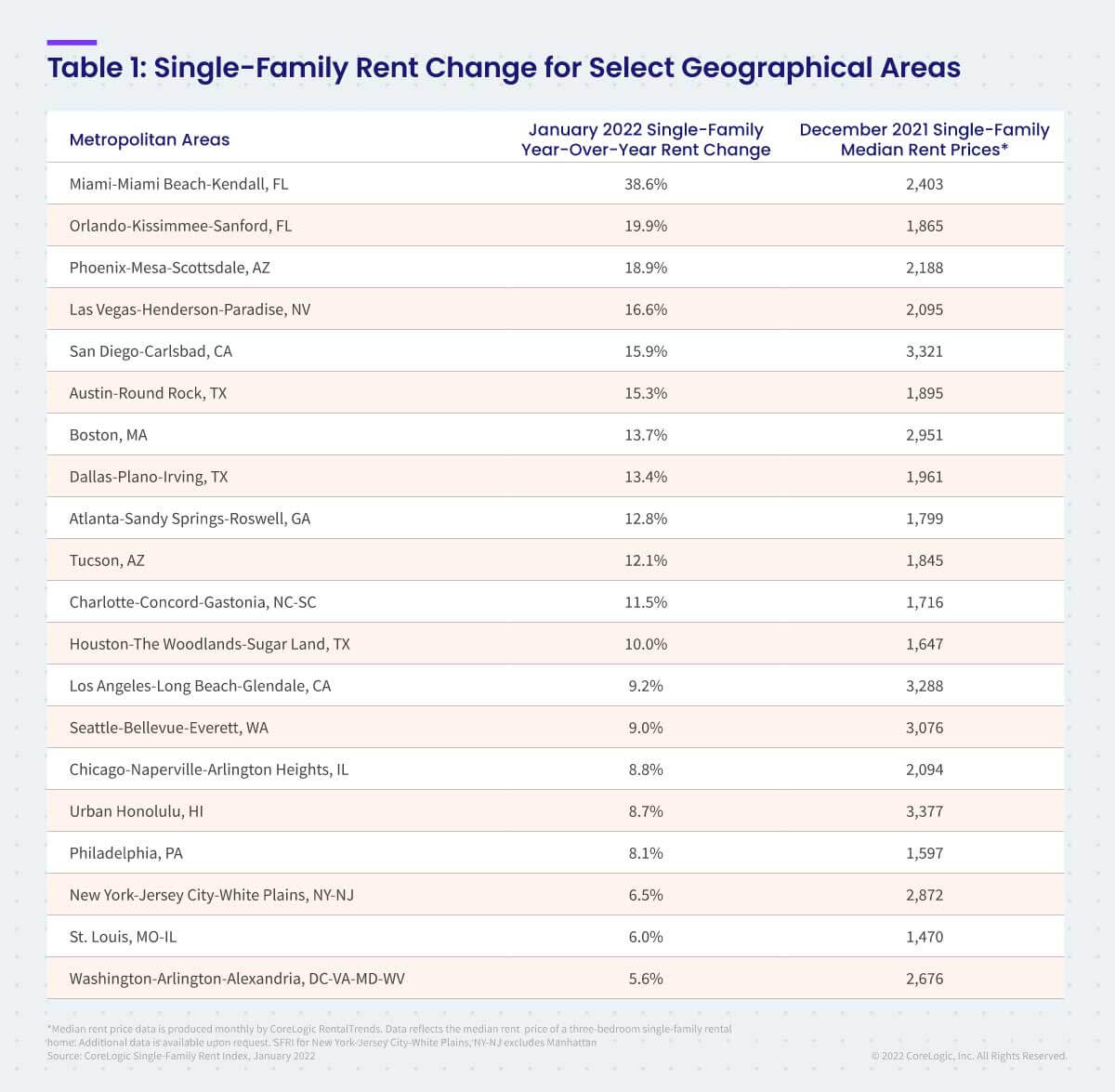U.S. single-family rent prices started 2022 strong, increasing 12.6% year over year in January compared to 3.9% in January 2021. All major metropolitan areas covered in the CoreLogic SFRI release experienced year-over-year increases, with Sun Belt cities once again registering the largest gains. The robust price growth was partially due to a continuing shortage of available rental properties. Also, the cost of purchasing a home rose by 19% on an annual basis in January, shutting out many would-be homebuyers and forcing them to keep renting. The year-over-year national rent price growth more than tripled the gain recorded in January 2021 and more than quadrupled the increase from January 2020.
“Single-family rent growth extended its record-breaking price growth streak to 10 consecutive months in January,” said Molly Boesel, principal economist at CoreLogic. “Rents increased across the country, and the gains were highest in the Sun Belt, which also had strong population growth last year.”
To gain a detailed view of single-family rental prices, CoreLogic examines four tiers of rental prices. National single-family rent growth across the four tiers, and the year-over-year changes, were as follows:
- Lower-priced (75% or less than the regional median): 12%, up from 3% in January 2021
- Lower-middle priced (75% to 100% of the regional median): 13.3%, up from 3.2% in January 2021
- Higher-middle priced (100% to 125% of the regional median): 13.4%, up from 3.6% inJanuary 2021
- Higher-priced (125% or more than the regional median): 12.2%, up from 4.5% in January 2021
Among the 20 metro areas shown in Table 1, Miami again had the highest year-over-year increase in single-family rents in January 2022 at 38.6%, another significant bump from its January 2021 growth rate of 2.2%. Orlando and Phoenix logged the second- and third-highest gains at 19.9% and 18.9% respectively, reflecting population gains seen in warmer areas of the country. Meanwhile, the Washington, D.C. area recorded the lowest annual rent price growth, at 5.6% in January.
Differences in rent growth by property type emerged after the pandemic, as renters sought out standalone properties in lower-density areas. This trend drove an acceleration in rent growth for detached rentals in 2021 while the gains for attached rentals was more moderate. However, as rental inventory remains slim, the gap between attached and detached rental growth started to close last fall. In January of 2022, attached rental property prices grew by 12.2% year over year, compared to the 12.4% increase recorded for detached homes. This is the closest that attached and detached growth rates have been since March 2020.
The next CoreLogic Single-Family Rent Index will be released on April 19, 2022, featuring data for February 2022. For ongoing housing trends and data, visit the CoreLogic Intelligence Blog: www.corelogic.com/intelligence.



Methodology
The single-family rental market accounts for half of the rental housing stock, yet unlike the multifamily market, which has many different sources of rent data, there are minimal quality adjusted single-family rent transaction data. The CoreLogic Single-Family Rent Index (SFRI) serves to fill that void by applying a repeat pairing methodology to single-family rental listing data in the Multiple Listing Service. CoreLogic constructed the SFRI for close to 100 metropolitan areas — including 47 metros with four value tiers — and a national composite index.
No related posts.











